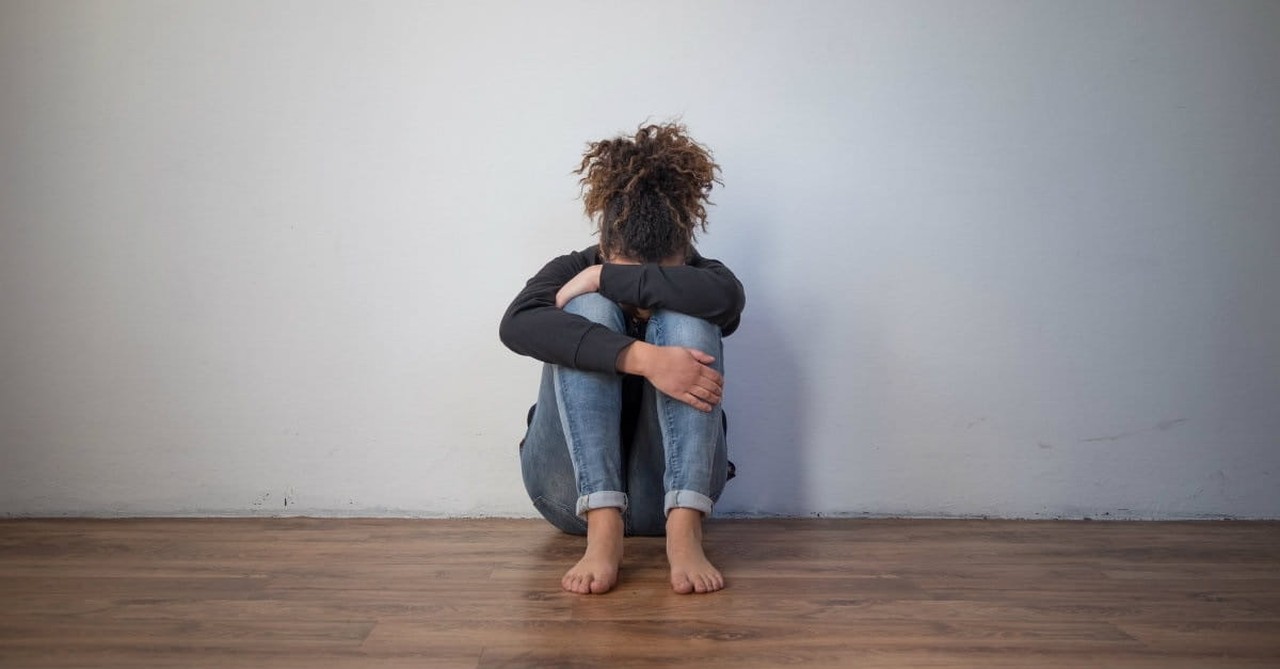
Every person who walks planet earth has been wounded. Some more than others. And pain has a way of sticking with us and affecting our relationships with others if we aren’t intentional about getting past it.
I’ve noticed how past pain in my life can creep up and make me insecure in my marriage when my husband has given me no reason to be. It can make me hesitant to trust others when they have done nothing to undermine my trust. And past pain can even make me doubt God’s love, forgiveness, or provision when His track record has given me no reason to doubt Him at all.
But you and I don’t have to remain stuck in the baggage from our past or let our pain impact our present. In my book, When a Woman Overcomes Life’s Hurts, I point out 10 steps to healing and wholeness that can help anyone – male or female – live like a new creation in Christ Jesus (2 Corinthians 5:17) rather than the old, dysfunctional wounded people that the enemy of our souls wants us to believe that we are.
Here are 10 ways to overcome the hurts in your life so they don’t continue to affect how you live and relate to others:
Photo credit: ©Thinkstock
1. Realize there's a reason for your pain.

1. Realize there's a reason for your pain.
SLIDE 1 OF 10
I, too, remember asking God “why” in the wake of my parents’ divorce and the discovery of my father’s closet alcoholism for more than two decades. Being raised in the church, I didn’t expect to go through something like that. And I certainly couldn’t think of a good reason that it happened.
It wasn’t until I came upon a passage of Scripture that I realized I might never understand the “why” and that’s okay. In Isaiah 55:8-11, we read: “For my thoughts are not your thoughts, neither are your ways my ways, declares the Lord...” (verse 8).
I’ve learned it isn’t so important that we understand why we are hurting, but it is essential that we trust the One who, in His love, is allowing that hurt to happen. That is the beginning of surrender and trust in a God who can redeem all things. And surrender is the beginning of healing.
Photo credit: Pexels.com
2. Reshape your understanding of God through Scripture.

2. Reshape your understanding of God through Scripture.
SLIDE 2 OF 10
When we are hurting, we are often believing something about God that isn't true. Sometimes we believe God is punishing us or is ignoring us out of His anger. When we look to Scripture to see who God really is and grab hold of that truth, it changes our lives.
Is it possible through your hurts and heartaches, that you've perceived God as different than He actually is? Maybe you haven't done that intentionally. Maybe you just put a face on Him that resembles someone who has hurt you. But God is not like a distant father you had difficulty approaching, or a critical mother whom you could never please, or an abusive spouse whom you couldn’t trust, or a controlling boss whom you learned to resent. Let God heal your heart of the hurt you’ve experienced by getting to know Him as He really is. As Scripture says He is.
John 8:32 says, "and you will know the truth, and the truth will set you free.”
Photo credit: ©Thinkstock/KucherAV
3. Reject the lie that God didn't care.

3. Reject the lie that God didn't care.
SLIDE 3 OF 10
We often see the disaster in front of us, we experience the pain, but we don't see the rescue that takes place on our behalf. That makes us believe the lie that God wasn’t there or that He didn’t care about the pain we experienced.
God promised in His Word that He will never leave us nor forsake us (Hebrews 13:5). His Word also says that no matter where we go, He is with us (Psalm 139:7-11). That means He has been with you in everything you’ve faced. Maybe you just don’t remember the sudden turn of events in which something worse could’ve happened, but didn’t. Maybe you don’t recall that He was protecting you in spite of the pain.
In Psalm 71:15 the Psalmist sings of God’s “saving acts all day long” though he knows not how to relate them all (NIV). How often has God protected you from something far worse that could've happened but didn’t? Reject the lie that He didn’t care. He was very likely working a rescue that you never even realized took place.
Photo credit: ©Thinkstock/kitzcorner
4. Re-examine the healing power of the cross.

4. Re-examine the healing power of the cross.
SLIDE 4 OF 10
I’ve known several women who believe that although God is forgiving, He could never forgive them for certain things they’ve done. But you are no exception to the healing power of the cross.
Psalm 103:12 tells us: "As far as the east is from the west so far has he removed our transgressions from us.” And in Isaiah 53:4-5 we are told: “Surely he has borne our griefs and carried our sorrows… He was wounded for our transgressions, He was bruised for our iniquities, the chastisement for our peace was upon Him, and by His stripes we are healed.” Notice that every verse in Isaiah 53 referring to the healing that Christ offers us from the cross is past tense – even though it was a prophecy in the Old Testament about what was to come through the birth, life, death, and resurrection of Jesus. Even though Christ's death for us was still future, at the time it was written, God saw our healing, through Christ’s death, as already done.
If you are thinking you will never be healed, then maybe you have never repented and asked Jesus to cover you with His life and death and blood. Because once He has, Your Heavenly Father sees you as already healed and complete in Him.
Photo credit: ©Thinkstock
5. Receive your new identity.

5. Receive your new identity.
SLIDE 5 OF 10
Many of us stay stuck in our past – claiming “that’s just the way I am” – because we continue to see ourselves as the wounded little girl or the rejected, unwanted little boy. But when we know Christ, that’s not who we are anymore.
Scripture says when you are in Christ Jesus you are His child (John 1:12), His friend (John 15:15), a saint (Ephesians 1:1), forgiven (Colossians 1:14), complete (Colossians 2:10), secure (Romans 8:1-2; Hebrews 13:5), and unconditionally loved (Romans 8:35-39), just to name a few.
When I find myself excusing my behavior because of past issues or believing I will always be hurt, I must remind myself again that Christ died for me to redeem “the way I am” so He can make me more like Him.
Photo credit: ©Thinkstock/mavoimages
6. Relinquish your right to yourself.

6. Relinquish your right to yourself.
SLIDE 6 OF 10
It’s natural for you and I to believe we have a right to a pain-free, happy life. But Jesus never promised even a comfortable life for those who followed Him. Rather, He said: “If anyone would come after me, let him deny himself and take up his cross daily and follow me,” (Luke 9:23). To pick up your cross daily means there’s going to be pain, hurt, discomfort, and a relinquishing of your right to yourself.
Furthermore, the Apostle Paul modeled to us a life that is surrendered to Christ in which we have no personal rights, when he said “I have been crucified with Christ. It is no longer I who live, but Christ who lives in me. And the life I now live in the flesh I live by faith in the Son of God, who loved me and gave himself for me” (Galatians 2:20).
True surrender means recognizing your life is not your own; you belong to a loving Master who has your best at heart. Relinquish your right to yourself and experience the peace that you are in your Father’s hands and He knows exactly what He’s doing.
Photo credit: ©Thinkstock/ipopba
7. Recognize real vs. distorted love.

7. Recognize real vs. distorted love.
SLIDE 7 OF 10
We get stuck in painful patterns from our past and repeat dysfunctional behavior when we fail to understand what healthy love looks like. In ministering to women, I’ve found that their search for love can cause them to tolerate unhealthy, damaging behavior in others.
Christ said “Greater love has no one than this, that someone lay down his life for his friends” (John 15:13). True, unconditional love involves self-sacrifice for the benefit of the other.
When you grab hold of God’s definition of love as seen in the life of Christ and in Scripture (1 Corinthians 13:4-7), you will raise your standards higher and not repeat mistakes that cause you pain, including tolerating relationships with people who continue to hurt you.
Photo credit: ©Thinkstock/tommaso79
8. Release yourself through forgiveness.

8. Release yourself through forgiveness.
SLIDE 8 OF 10
Not only do we need to forgive ourselves of offenses we believe are unforgivable, but when we forgive others who have offended us, we end up letting ourselves off of their emotional hook.
We stay in bondage to our pain and the one who caused us pain when we refuse to forgive another person. They may not ask for your forgiveness, they may not even be sorry, but when you release your offender – and the offense – to God and say “I’m not going to expect this person to make it right, because they never could anyway,” you will experience freedom from the pain. We forgive because Christ has forgiven us (Matthew 6:14-15). And we forgive, because it is essential to our own healing process.
Photo credit: ©Thinkstock/DS011
9. Refresh your soul through praise.

9. Refresh your soul through praise.
SLIDE 9 OF 10
1 Thessalonians 5:18 says “in everything give thanks, for this is God’s will for you in Christ Jesus.” In everything – even the unwanted, uncomfortable, and unpleasant things – give thanks, and you will be living out God’s will for you. As you praise God, He will give you a new perspective. He will remind you of who you are in His eyes. And you will experience joy again. Worship draws us closer to the presence of God. And Psalm 16:11 says, “In His presence, is fullness of joy.”
Praise Him in the pain and you’ll find yourself experiencing His peace and His joy… evidence that you have overcome your hurts.
Photo credit: ©Thinkstock/Vespie
10. Re-invest in the lives of others.

10. Re-invest in the lives of others.
SLIDE 10 OF 10
I’ve seen it over and over again. A man or woman who is wounded receives God’s healing and then gets back into the trenches where he or she was wounded and begins to help others out of their painful situation, as well. It’s how God turns our pain into our purpose. It’s how He brings something beautiful out of what was once bitter. And it’s how He completes our healing process.
Second Corinthians 1:3-4 tells us that the God of all comfort “comforts us in all our affliction, so that we may be able to comfort those who are in any affliction, with the comfort with which we ourselves are comforted by God.”
Whom can you comfort with the comfort God has given you? Whose life can you encourage by sharing where God has met you in your pain? God ministers healing to us as we reach out to minister to the hurts of others.
Cindi McMenamin is a national speaker who helps women and couples strengthen their walk with God and their relationships. She is the author of 16 books, including the best-selling When Women Walk Alone (more than 125,000 copies sold), When God Sees Your Tears, and When a Woman Overcomes Life’s Hurts, which includes the ten steps to healing and wholeness summarized in this article. Her newest book, Drama Free: Finding Peace When Emotions Overwhelm You is now available. For more on her speaking ministry, books, or free articles to strengthen your soul, marriage, or parenting, see her website www.StrengthForTheSoul.com.
Photo credit: ©Thinkstock/WavebreakmediaLtd
Originally published February 19, 2019.







